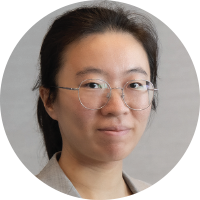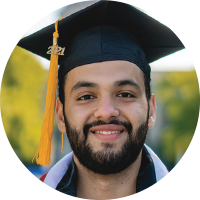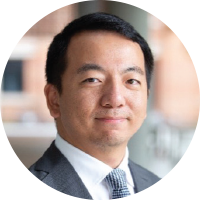The Power of Partnership
Chevron partners with the Rice Sustainability Institute to support research in sustainable energy solutions.

Spring 2025
By Marcy de Luna
Since the discovery of the Spindletop oil field in 1901 that sent 100,000 barrels of crude oil per day gushing into the air for nine days straight — a discovery which also injected an estimated $235 million, or $7.9 billion in today’s money, into the Texas economy that year as a result — Houston has been widely recognized as the energy capital of the world. Over a century later, Houston is now positioned to become a new leader in this space as the energy transition capital of the world.
A new fellowship funded by Chevron in partnership with the Rice Sustainability Institute underscores that commitment by providing $10,000 each to 10 Rice graduate students for this academic year, supporting their groundbreaking research in energy-related fields.
The fellowship recipients are researching solutions to pressing energy challenges, from recycling lithium-ion batteries to producing eco-friendly hydrogen alternatives to fossil fuels. Their work focuses on creating real-world solutions to transform the energy landscape.
“This fellowship supports students working on a wide range of topics related to scalable innovations in energy production that will lead to the reduction of carbon dioxide emissions,” says Carrie Masiello, director of the RSI.
Masiello also highlighted the fellowship’s diverse group of applicants, which spanned 10 departments and four schools at Rice. “It’s important that we recognize the importance of intellectual diversity to the kind of problem-solving we have to do as we accomplish the energy transition,” she says.
Chris Powers ’02, vice president of carbon capture, utilization and storage and emerging at Chevron New Energies, is a Rice alumnus who recognizes both the importance of innovation and the importance of investing in young researchers whose work will transform not only Houston but the world.
“I’m excited to support emerging leaders like you all in this room, who are focused on scalable, innovative solutions, because the world needs them,” Powers said at a reception honoring the inaugural cohort last fall. “Innovation and collaboration across sectors and borders will be key to unlocking the full potential of lower carbon energies. And it’s groups like you, our newest Chevron Fellows, that can help move the needle when it comes to translating, or evolving, the energy landscape for the future.”
Carrie Masiello is the W. Maurice Ewing Professor of Biogeochemistry, Earth, Environmental and Planetary Sciences; professor of chemistry and biosciences; and director of Rice’s Sustainability Institute.
2024–2025 Rice Chevron Energy Graduate Fellows
 |
Xi Chen, a Ph.D. student in materials science and nanoengineering, uses microwave-assisted techniques to recycle lithium-ion batteries sustainably. |
 |
Ahmad El Gazzar, a Ph.D. student in chemical and biomolecular engineering, focuses on renewable fuels and carbon-capture technologies. |
 |
Enina Egiebor, a Ph.D. student in chemical and biomolecular engineering, works on solar-driven technologies to produce green hydrogen, an alternative to fossil fuels. |
 |
Wesley Hungbui, an MBA student, develops financial models to encourage investment in sustainable energy projects. |
 |
Alexander Lathem, a Ph.D. student in applied physics, researches carbon-free methods to produce ammonia, a key agricultural fertilizer. |
 |
Stan Kannegieter, a Ph.D. student in economics, explores the monetary and environmental benefits of investing in soil organic carbon sequestration on agricultural land. |
 |
Zina Deriche, a Ph.D. student in chemical and biomolecular engineering, works on improving the efficiency and safety of solid-state batteries by using metal-organic frameworks. |
|
|
Travis Seamons, a Ph.D. student in systems, synthetic and physical biology, focuses on engineering soil microbes to enhance the removal and storage of greenhouse gases in the soil. |
|
|
Miriam Gammerman, a Ph.D. student in earth, environmental and planetary sciences, studies soil minerals’ role in the global carbon cycle to improve carbon storage. |
|
|
Ziran Wang, a Ph.D. student in civil and environmental engineering, studies power grid resilience in response to natural disasters and system failures. |



